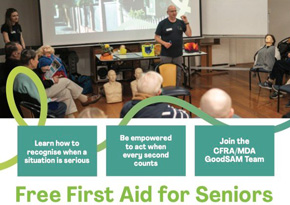ParaMaccabeans
For the first time in Maccabiah history, Australia will have three athletes compete in Paralympics sports at the Games in Israel in later this month.
Adam Kellerman, a wheelchair tennis star who represented Australia at the Paralympic Games in London in 2012; Velik, a 19-year-old swimmer from Sydney; and Mizrachi, a 25-year-old table tennis player from Victoria, will be the pioneers taking part in the latest addition to the Maccabiah Games.
“Maccabiah is leading the way – other sports should be incorporating disability sport with able bodied sport. It’s not disability sport. It’s just sport,” Adam said.
“It’s massive for the sport, as well as the country.
“Wheelchair sport is a sport just like any able-bodied sport.
“A lot of the athletes work just as hard, if not harder, than able-bodied athletes, so we have every right to compete in front of the same crowds as our other Jewish athletes.”
Adam, who made the third round of the wheelchair tennis tournament in London in 2012, has become a champion of the paralympic movement in recent years as his flourishing career has developed. He is a passionate public speaker, and was most recently the guest of honour at Maccabi NSW’s annual awards night.
“I’ve made a couple of motivational speeches, where I say: anything is possible and you should go after what you want,” Adam told Maccabi NSW news in 2012.
“Sometimes it takes a lot to find what you want. Once you find it, you don’t hesitate.”
When the opportunity arose for him to play a part in the Australian team at the 2013 Games, Adam was eager to make it work. Indeed, so were the Maccabiah organisers, who shuffled the schedule to ensure the high profile athlete could compete.
“It’s a great honour to play over in Israel and to play for Australia and I’m very excited they could change the schedule so I could compete. I’ve always wanted to go to a Games, just never had the opportunity.”
He arrives at the Games in hot form, having just returned from Turkey from the World Team Cup – the equivalent of tennis’ Davis Cup. Australia – Adam, Ian Oh-Chee and Ben Weats – beat Greece in the final to win their group and progress to the top world pool next year.
The tournament is the highlight of the wheelchair tennis circuit, with 24 mens, 12 womens, eight quad division and eight junior countries participating. Adam was undefeated in both his singles and doubles matches.
In the pool, Mark Velik cannot wait for the “incredibly exciting opportunity” that awaits him in July.
The 2011 school captain of Masada College in Sydney’s north has a hand deformity, where he is missing fingers on his left-hand – but swimming has been a huge part of his life since he started it with friends in year 2.
“It’s been really rewarding,” Mark said. “Swimming in general gives you good time management skills. It’s been really great to have the opportunity to compete at quite a high level. It’s probably helped me in more factors in my life and I’ve met some amazing people.”
Mark got to NSW All Schools rep level while at Masada and attended the national disability age titles in Canberra a number of times until easing off after school.
But with the opportunity opening up to compete at the Games, Mark is back in the pool, training had and “back in the swing of things”.
“It’s really, really exciting.
“It’s a great opportunity for a lot of disabled athletes out there and to widen it into the Games.
“Given how big the Games are, it’s probably a bit overdue, but great credit to Harry Procel for his efforts driving it.”
While Mark would love to return with medals around his neck, he adds: “the main thing is just to perform at my best, get some good times on the board and “hopefully give some encouragement to the rest of the team as well”.
Barak Mizrachi has already been to a Maccabiah Games as a junior and opens competitor, but before attending his third Games in the new Paralympic category, he will represent Australia at the 27th Summer Universiade in Kazan, Russia – the first athlete with a disability to represent the country in this competition.
It will be a huge month for Barak, involved in two huge tournaments – both events will see over 9,000 people.
Indeed, they could be the springboard for further achievment for Barak, who was diagnosed with cerebral palsy at birth, which affects the right side of his body. His next goal is the Paralympic Games in Rio in 2016.
“When I get back from Israel, essentially I’ve got a year-and-a-half before the qualifying events start,” Mizrachi told media in May.
“So I’m going to train up to that and hopefully I can make selection.”









